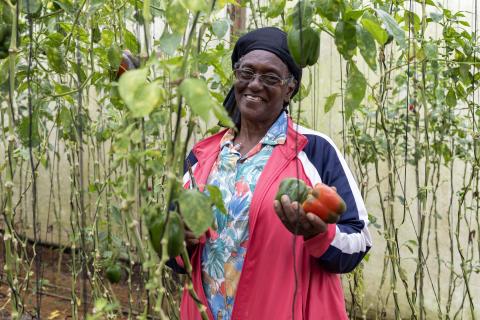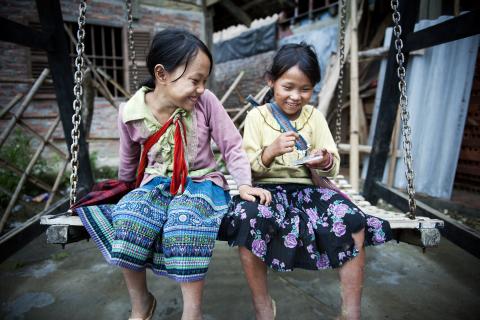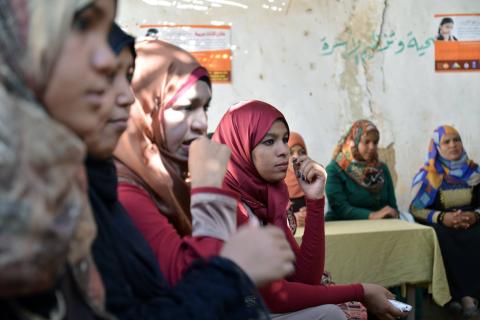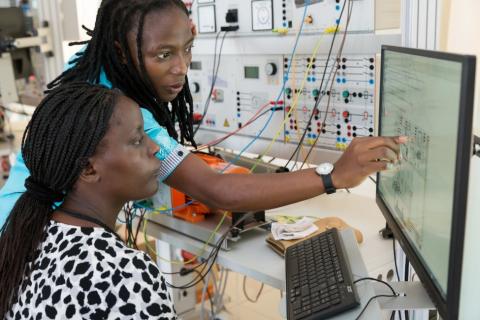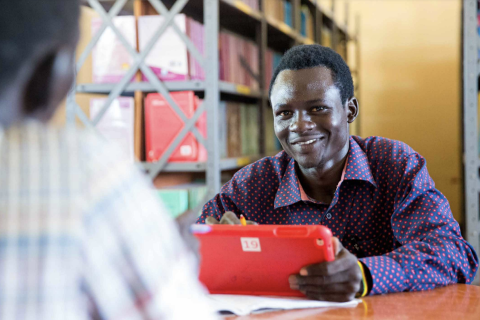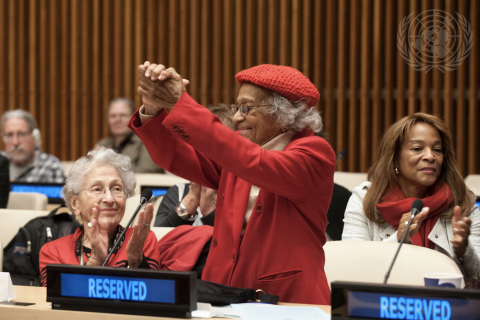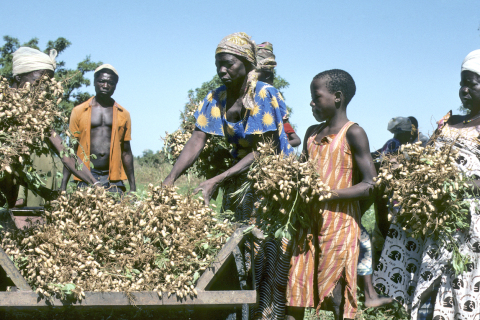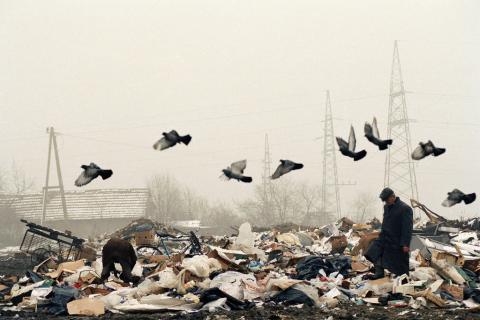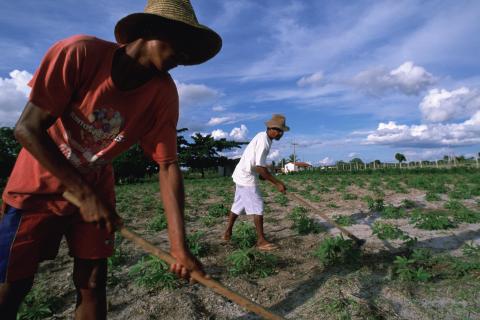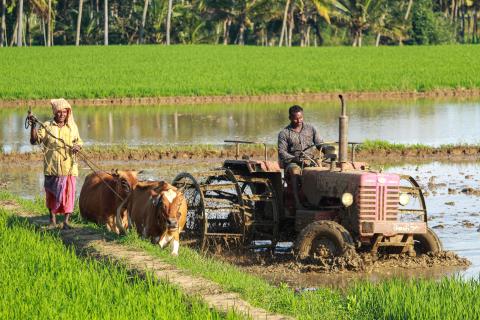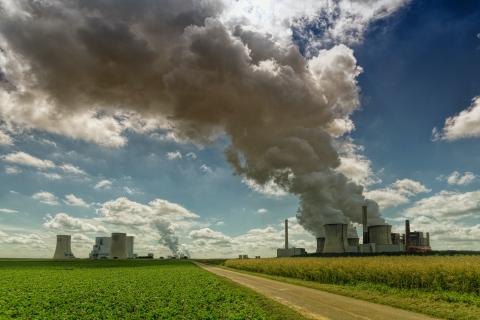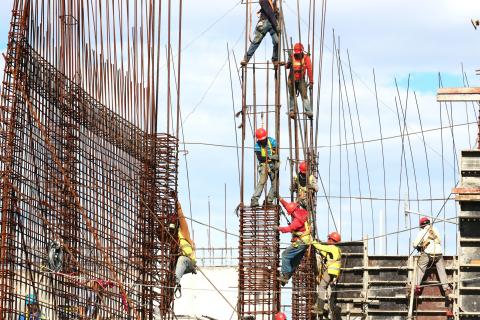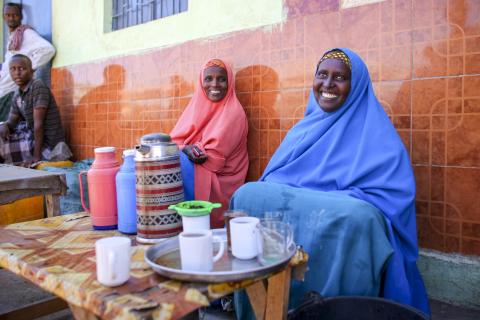UN DESA Policy Brief No. 180: Anticipating the extent and pace of population ageing in SIDS can help build a more sustainable future in these vulnerable states
Over the next decades, most small island developing States (SIDS) are projected to experience a rapid increase in both the share and the number of people aged 65 years or over. In half of the SIDS, the size of the older population will double between now and 2055. All SIDS, even those with youthful populations today, should embrace forward-looking strategies to capitalize on the opportunities that population ageing will bring, while also addressing the context-specific challenges it may pose.
UN DESA Policy Brief No. 179: From the First to the Second World Summit for Social Development: reclaiming a broad vision of social progress
The World Social Report 2025 warns that piecemeal approaches are no match for the scale and interconnectedness of today’s challenges. Rising economic insecurity, persistent inequality, eroding trust, and social fragmentation demand coordinated responses grounded in a shared commitment to equality, social justice, and solidarity. The 2025 World Summit for Social Development offers a chance to reaffirm the Copenhagen Declaration and reapply its principles to current realities, restoring a holistic vision of social progress as the foundation of a more inclusive, resilient, and sustainable future.
UN DESA Policy Brief No. 178: Assessing group-based inequalities across the life course for a more inclusive world
While there has been progress in promoting opportunities for all since the 1990s, group-based inequalities persist, including during childhood. Gaps between groups are not closing fast enough; the goal of leaving no one behind is likely to remain out of reach by 2030. This brief illustrates how inequality in opportunity between different population groups can be quantified using existing household survey data, drawing on analysis conducted for the 2025 edition of the World Social Report.
UN DESA Policy Brief No. 161: On the path to an older population: Maximizing the benefits from the demographic dividend in the least developed countries
While many least developed countries (LDCs) are still experiencing persistently high fertility and rapid population growth, they have also begun to experience progressive population ageing. Preparing for population ageing in LDCs will be critical for achieving sustainable development and ensuring that no one is left behind. Maximizing the benefits from the demographic dividend will provide an opportunity for these countries to develop economically before their populations become much older.
UN DESA Policy Brief No. 152: Population, education and sustainable development: interlinkages and select policy implications
The demographic transition, including decreased fertility and child dependency, brings opportunities to boost the human capital of young people and adults alike.
UN DESA Policy Brief No. 150: Economic well-being at older ages: prospects for the future
More must be done to tackle decent work challenges, promote transitions from informal to formal employment, combat long-term unemployment and strengthen mechanisms to set and adjust wages.
UN DESA Policy Brief No. 143: Caregiving in an ageing world
Rethinking approaches to long-term care will benefit today’s older persons and those who care for them, but also future generations of older persons. Countries should consider a more equitable, person-centred approach to care, operating across governments, businesses, civil society, communities and households to address needs in the provision of both formal and informal care.
UN DESA Policy Brief No. 129: The monetary policy response to COVID-19: the role of asset purchase programmes
Central banks have relied heavily on unconventional monetary policy tools, especially large-scale asset purchases, to respond to the pandemic. These programmes have helped to stabilize financial markets and kickstart economic recovery. But the central bank asset purchases have also contributed to an underpricing of risk and sharp increases in asset prices.
UN DESA Policy Brief No. 125: Improving compatibility of approaches to identify, verify and align investments to sustainability goals
Regulators and other market participants have introduced a variety of mandatory and voluntary approaches to help investors align investments with sustainability goals.
UN/DESA Policy Brief #120: Investing in the future of rural non-farm economies
Development strategies that focus solely on urban development and leave rural communities behind are not adequate to overcome the development challenges we face.
UN/DESA Policy Brief #113: Digitally enabled new forms of work and policy implications for labour regulation frameworks and social protection systems
Social protection systems need to adapt to ensure no worker is left unprotected in a future world of work transformed by digital technology.
UN/DESA Policy Brief #112: Harnessing longevity in the future of work
Promoting the inclusion of older persons in the new realities of work requires addressing barriers in their access to decent work, including discrimination and participation in informal employment.
UN/DESA Policy Brief #109: Accelerate action to revamp production and consumption patterns: the circular economy, cooperatives and the social and solidarity economy
Achieving sustainable development requires determined actions to revamp production and consumption patterns, creating a resource-efficient and resilient post-pandemic recovery.
UN/DESA Policy Brief #108: Trust in public institutions: Trends and implications for economic security
Economic insecurity—which the COVID-19 crisis threatens to exacerbate—and perceptions of poor or corrupt government performance undermine the social contract and are closely linked to declines in institutional trust.
UN/DESA Policy Brief #107: Social protection in rural areas: achieving universal access for all
Government action is required to ensure social protection measures, including floors, are available for all in rural areas.
UN/DESA Policy Brief #105: Circular agriculture for sustainable rural development
The strengthening of institutions and incentives such as water user associations and secure water and tenure rights, along with enhanced international cooperation, can spur greater application of circular approaches in agriculture.
UN/DESA Policy Brief #99: Why does corporate sustainability reporting matter to rebuilding better?
Business and financials models must be rethought to accelerate and strengthen business’ contributions to sustainable development
UN/DESA Policy Brief #97: COVID-19 and Beyond: Scaling up Private Investment for Sustainable Development
Further action is needed to better channel investment to countries and SDG-related sectors that are most in need. The development of innovative and scalable global platforms, instruments and funds would be an important first step in this regard.
UN/DESA Policy Brief #94: A changing world of work: implications for the social contract
COVID-19 has had a devastating impact on the world
of work, hitting labour markets that were already weak
and fragile.
UN/DESA Policy Brief #93: Social policy and social protection measures to build Africa better post-COVID-19
This policy brief reviews the socio-economic impacts of the COVID-19 crisis in Africa and presents the continent’s social protection responses.
 Welcome to the United Nations
Welcome to the United Nations
